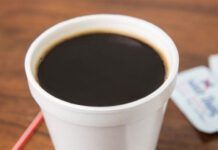The BasicMed checklist we’ve been reviewing in the Healthy Pilot series ticks the usual boxes—dizziness, sensitive gut, cancer, kidney stones and more. They’re all there, even depression and mental acuity.
But the central player in your personal health history is your heart. It unfailingly pumps oxygenated blood out to the extremities, distributes nutrients to the cells, infuses the brain and recycles blood to the lungs where it drops off waste gas and picks up more oxygen—all in one smooth cycle.
As we reach a certain age, three elements become critical to the uninterrupted functioning of your heart—cholesterol management, blood pressure management and heart rhythm management. There are a lot of other things that can go south when it comes to your heart—sticky valves, bulging soft spots in the plumbing or disturbing enlargements that hinder efficiency.
But, for a pilot with no prior or family history of heart trouble, cholesterol, blood pressure and rhythm require a bit of attention as we advance in age and wish to maintain that lofty perch in the left seat.
Your Heart in Focus
Once again we’ve turned to our friends at sister site University Health News to glean a bit of insight into your heart health’s Big Three. We begin with a quick take on cholesterol—what it is and what it isn’t. Cholesterol is not a “fat” in the strictest sense. Our bodies manufacture it to deliver energy to the cells. It’s also present in the foods we eat. But too much cholesterol, particularly the bad kind, can lead to coronary artery disease and, potentially, heart attack.
There are three types of cholesterol—LDL, or low-density lipoprotein; HDL, or high-density lipoprotein; and triglycerides, the main constituent of body fat. LDL cholesterol is vital in keeping our cells functioning, but too much of it can accumulate in the interior walls of our vascular system. HDL is also called “good” cholesterol because it helps scavenge LDL cholesterol so it can be removed as waste. Triglycerides store unused calories in the form of fat and contribute to the main problem caused by the accumulation of cholesterol—atherosclerosis.
Cholesterol and triglycerides set up the classic “clogged arteries” we’re all trying to forestall. When cholesterol accumulates, it forms a fibrous cap. When the fibrous cap breaks, the sudden release of cholesterol creates a clot of blood cells that stops blood flow and damages heart muscle.
To assess your cholesterol level, your doctor will order blood drawn and sent out to the lab, where your “lipid panel” will be evaluated. Total cholesterol and triglyceride levels will be checked. You’ll want a low LDL and a high HDL. Based on risks such as family history and cholesterol value, a medication called a statin might be ordered, which can be very effective in lowering cholesterol. Medications are also available for people with extremely high cholesterol levels, often brought on by a condition called “familial hyperlipidemia.” If that’s the case, ask your doctor about the new class of medications called PCSK9 inhibitors.
You’ve Got Rhythm
Your heart is a pump, and your vascular system transports fluid out to your extremities through a system of pipes and valves. The pump is powered by electric pulses that contract the heart muscle at a prescribed rate—more when you are exerting yourself, less at rest. Your heart delivers these electrical pulses through a collection of cells called the sinus node, which are located in the upper wall of the right atrium.
If you experience sinus node disruption or dysfunction, you can develop what’s known as an arrhythmia. Worse case, a severe problem with your heart’s sinus node can lead to cardiac arrest. Warning signs include shortness of breath, palpitations or lightheadedness. Arrhythmias can also lead to a common condition called atrial fibrillation, where the heart quivers instead of pumps. This can lead to blood pooling, which can lead to clots and, potentially, a stroke.
Blood thinners are the normally prescribed drug for a heart arrhythmia. Warfarin (Coumadin) was the standard for many years, but there is a new class of blood thinners (Pradaxa, Eliquis) that offer easier management.
Serious instances of arrhythmia might be managed through a procedure called sinode ablation, where a probe—infrared, cryo or laser—is inserted in the heart muscle via the femoral artery and zaps the sinus node into a regular rhythm.
Blood Pressure – The Silent Killer
High blood pressure, also known as hypertension, can cause a cascade of maladies that include stroke, aneurysm, heart failure—even sexual dysfunction. It’s called the silent killer because there are no real symptoms of high blood pressure, and if left untreated, can lead to early, permanent heart problems.
The easiest way to contend with this near universal consequence of aging is early detection and adoption of antihypertensive medications. The threshold of what constitutes high blood pressure has just been lowered to 135/80 from 140/90. The first number is systolic pressure and is a measurement of the pressure inside your heart when your heart beats. The second number is called diastolic pressure and it measures pressure between beats. The lower threshold for hypertension means that millions more people will be classified as having high blood pressure, and will therefore be treated earlier.
The key to managing blood pressure is continual monitoring—at the doctor’s office, but many physicians now recommend a home monitoring unit that lets you track your blood pressure daily or weekly. If your blood pressure is elevated, your doctor will prescribe any of a number of antihypertensive medications to meet your personal circumstances.
Increasingly, people with high blood pressure are turning to lifestyle changes or natural blood pressure lowering regimens. Losing weight always improves blood pressure values. So does a plant-based diet and exercise. Doctors recommend at lest 150 minutes of cardio exercise weekly, but if you can’t fit that in, any kind of exercise is better than none.
That’s it. Your heart health will take a turn for the better if you concentrate on the Big Three to lower heart disease risk.

































